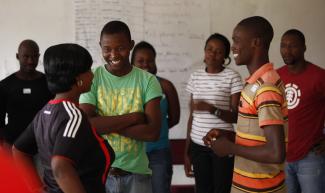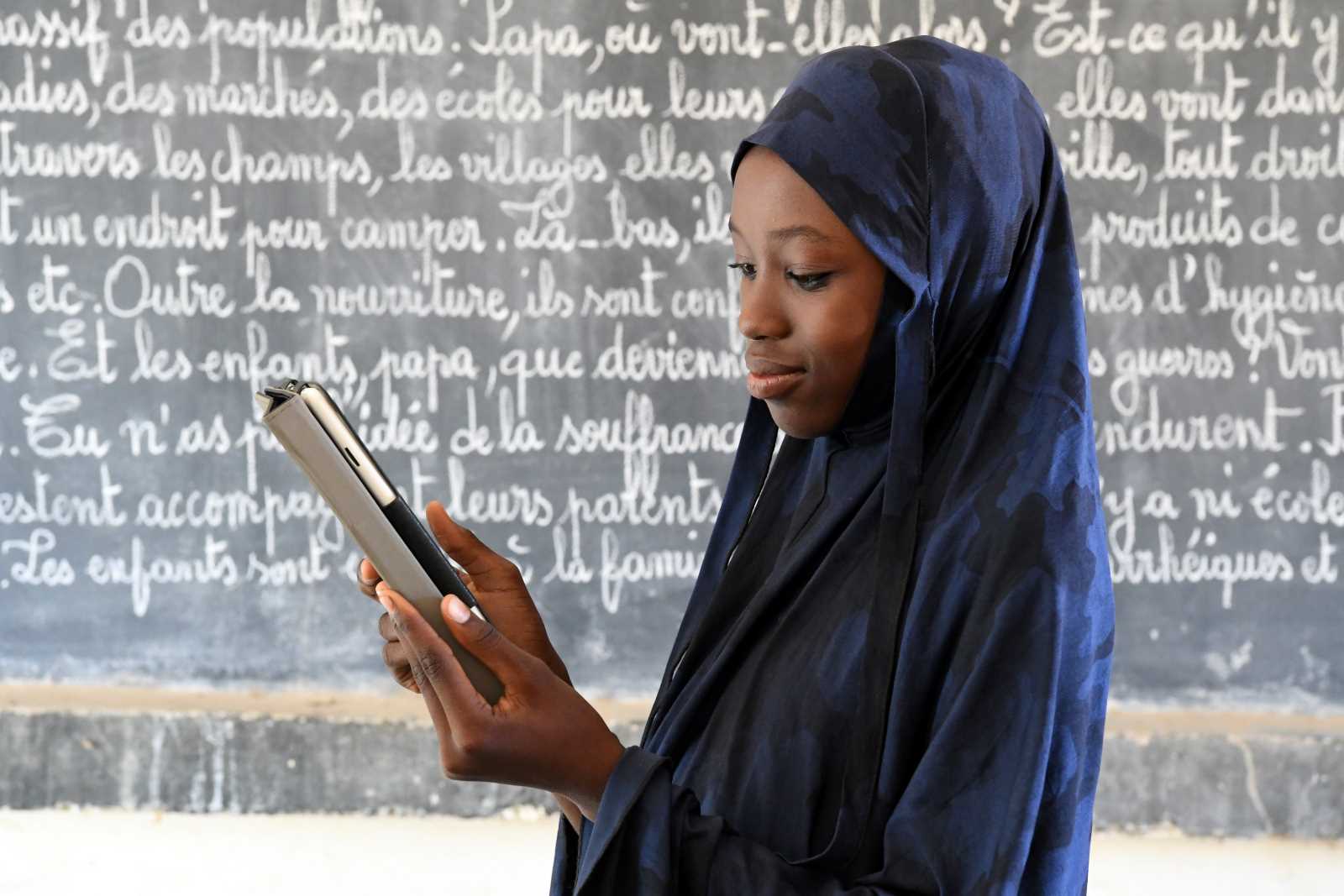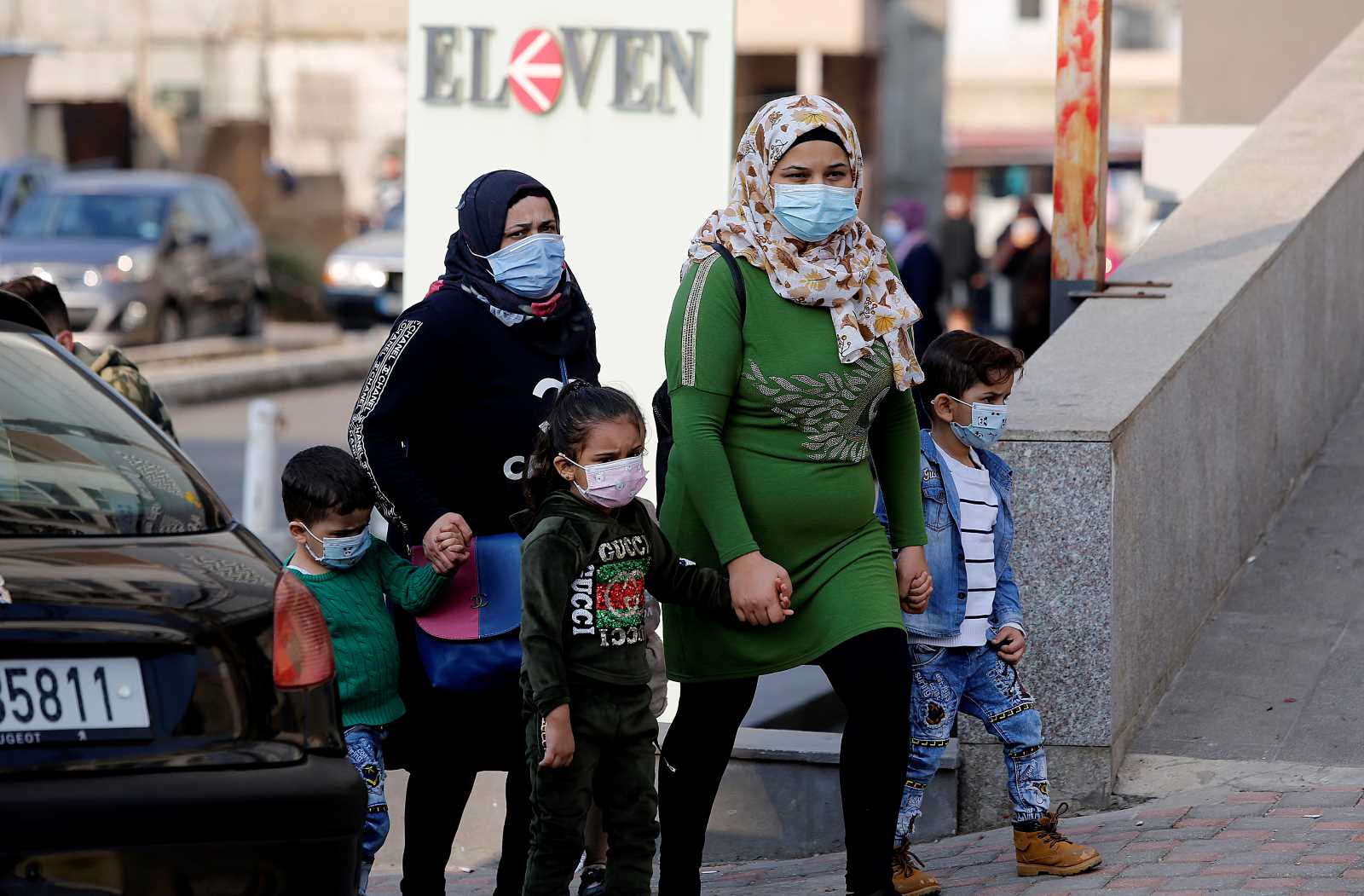Outdated stereotypes
Engaging men

Many donors, aid agencies and government institutions conceptualise reproductive health and related rights primarily as a women’s issue. What is wrong with doing so?
Well, if we want women to enjoy their rights, we have to create an environment where men actively support those rights. We want them to become advocates for those rights and challenge patriarchal norms. The first step is that men understand women’s rights and respect women’s autonomy in regard to saying yes or no to sex, to contraception and abortion for example. Women must be in a position to decide whether they want to get pregnant or not. In the past, the gender discourse had to focus on women’s reproductive health and rights, partly because so much had to be done to realise those rights. And since a lot of that work remains unfinished, the focus should not shift away from women. On the other hand, most women experience their reproductive and sexual health in relationships with male partners. Accordingly, we must involve men and boys in the discourse. We must do it carefully, so we do not compromise women’s hard won autonomy. That balance can be difficult to strike. But we know that, if men are involved in the right way, matters will improve for women. Obviously, men must also have a right to learn about family planning, sexual rights and reproductive health. What they don’t have is a right to control women’s bodies.
What are the needs of boys concerning sexual and reproductive health?
In South Africa, the government has put a lot of emphasis on making condoms available to adult men. Boys have a harder time to get condoms. Schools don’t provide condoms. Boys and girls both need comprehensive sexual education. Both sexes need access to the commodities which protect their sexual and reproductive health, and both need to be enabled to enjoy sex. We want to make sure that young people understand the importance of condom use, feel comfortable asking for a condom, using a condom. Unless there are frank conversations about sexuality, neither boys nor girls will get the information they need.
So schools matter?
Yes, comprehensive sexual education in schools is critically important. In South Africa, sex education is supposed to be integrated in what are called “life orientation” classes, but all too often, that does not happen or is not done well. Many teachers remain very critical and judgemental about young people’s sexuality. On the other hand, we have to question the behaviour of teachers as role models. Some of them have sex with female students and offer better grades in exchange. At the same time, boys go home to families where their mothers are treated poorly, and that has an impact on their sexual socialisation. Gender equality has to be a core issue of sex education. Sex education must not only be about what a condom is and how to use it. It should be about how to establish consent and about how you understand your body and your partner’s body.
Does religious faith have an impact on sex education?
Yes, sex education is sometimes overlayed with religious values. We need to shift the discussion away from considering sex a danger and a pathway to disease. Instead, we need to talk about pleasure and responsibility, joy and passion. Young people want to have those conversations. Much of the work we need to do applies equally to boys and to girls. But there should be gender sensitive messages about what it means to men to be in a relationship, about respecting women’s bodily autonomy, including her desire to have or not to have children.
Where does Sonke raise these issues?
We work at all levels. At the policy level, we try to make sure that policy is drafted and implemented appropriately. We also work with the health-care providers to make sure that they do their work in a way that meets the needs of the clients. And we do clinic talks. Our team engages men and women who are sitting there waiting. At the moment, we do a lot of work in the area of maternal and child health, reaching out to young fathers and emphasising non-violent, caring fatherhood.
What are the main challenges?
A big challenge is to create a space where people can talk openly about sex. Another challenge is getting the necessary information about family planning and about sexual and reproductive health to the people. In addition, there are not enough health-care facilities. If people live in rural areas, they may not have access to health services, and if they do, these may not have condoms or other contraceptives. Another challenge, as in many other countries, is women’s limited abilities to enjoy their rights, caused by enduring patriarchy and a kind of religious fundamentalism, which goes along with patriarchal norms. And of course, gender-based violence is a big problem. Finally, there is the huge issue of HIV/AIDS.
I’ve been told that most HIV/AIDS programmes in South Africa neglect men. What’s the problem?
Well, most men don’t get tested, so they don’t get on treatment at the same kinds of rates as women do. If men don’t know their status, they are less likely to use condoms and reduce the number of their sexual partners. If they don’t get on treatment, they are more likely to fall sick, to have a high viral load and are more likely to infect other sexual partners. Men’s low utilisation of HIV services and the resulting higher mortality is a problem for men, but it is certainly also a problem for women. Men have a right to these services, and it is important that they are enabled to exercise this right for their own health, but also for the health and well-being of their partners. In South Africa, men are dying more than women from HIV/AIDS. At an individual level, it is important to help men to understand that conventional male attitudes are very self-destructive. We encourage men to recognise that it is only a poor decision to stay away from health-care services, and not a sign of manliness. We frame seeking health services as a sign of responsibility rather than as a sign of weakness. We say it takes courage to get tested. Let me emphasise, however, that is not about a zero sum game or about pitting men against women. It’s about recognising shared interests.
There is a new HIV National Action Plan. Will it make a difference?
It emphasises giving men access to services and educating them about women’s human rights. The approach is good, but to implement it, government agencies will have to reconsider gender stereotypes. We encourage the government to operationalise its plans, and make sure that it is really paying attention to the issue of men’s low utilisation of health services. A lot still needs to happen. Brazil has a unit that is dedicated to men’s health in the health department. In South Africa, we don’t have anything like that. We only have a Women’s Health Unit. The national Prevention of Mother to Child Transmission HIV Policy does not even mention the word father or male partner once. The challenge is to recognise that women and men live in relationships together, and that men should be a source of support for women. But let me add that health information is not only relevant in regard to sexually-transmitted diseases. If a man knows that he is infertile or has a low sperm count, he is not going to blame his partner for not conceiving. There is a lot of work to be done to change harmful attitudes.
How does your network tackle distorted ideas of male dominance?
The first thing is to recognise that men are not a monolithic group. Many men support women’s rights. They want women to live free of violence and to be in control of their sexuality. We appeal to these men to become more vocal and active in their support of emancipatory gender norms. We do a lot of work to support those men, so they feel less alone and recognise that they are part of a broader movement. We mobilise these men to take more action. We do that through workshops, through engaging the media, through directing films, through changing national politics. Ten or 20 years ago, people did not really think, that this was possible. But we have seen that change is very possible.
Let’s look beyond South Africa. What is your take on reproductive rights in the Sustainable Development Goals (SDGs) that the UN plans to adopt in 2015?
We are part of the MenEngage Alliance, which is active in about 50 countries globally, and we are involved in the Men Care Campaign, which works in more than 30 countries and focuses on men’s responsibilities in regard to maternal and child health. In regard to the SDGs, we would like to see quantifiable standards on gender equality as well as HIV/AIDS. It is important to see men as change agents in regard to planned and caring parenthood, non-violent relationships and reproductive health. If we want to achieve improvements for women in these areas, we must pay proper attention to the men they share their lives with.












